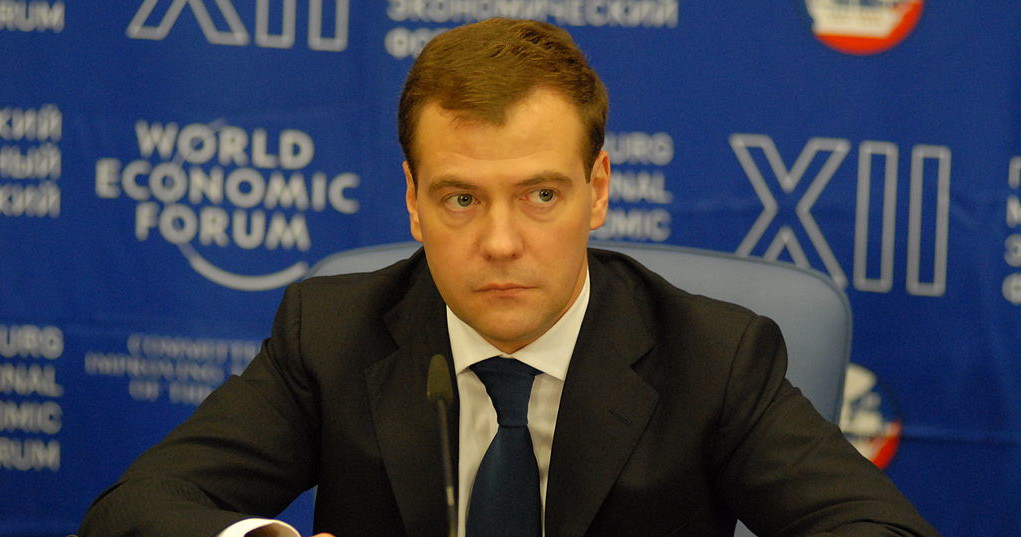The primary image of Russian political leadership, in the current political climate, is that of a sultry Russian President Vladimir Putin, who cares not a whit for Western norms or demands. And when Russia’s economic leadership comes to mind, one envisions oligarchs and state-owned industry, aligned within a power vertical, paying fervent heed to the will of their Kremlin overseer. The middle class is weak. The economy is oil-driven. In terms of economic and political leadership, under this supposition, Russia’s trajectory would seem rather stagnant.
However, data shows there is a burgeoning middle class in Russia, and we in the West often believe that the key to substantial democratization is to develop a vibrant middle class. Property-minded individuals are generally regarded as a good source of rule of law — for examples think of the American constitutionalists in the 1780s and the Iranian constitutional revolutionists in 1905-07, to name a few. They’re not so wealthy as to be aristocrats, but not so poor as to be immobilized by their financial position and therefore not limited in terms of political power.
It would then seem that in Russia the business class, who lives substantially better than the rest of Russia in terms of household income, would demand a degree of accountability from Putin. In the wake of the fall of the Soviet Union, Western eyes have looked to Russia’s urban middle class as a fledgling hope that free-market capitalism could take hold and work in Russia.
Enter Dmitri Medvedev, the former Russian president, who for a while was praised as a middle-class, liberal alternative to Putin. Medvedev on first sight would come across as an affirmation of everything the West could have dreamed of happening in the wake of the Soviet collapse. Mr. Medvedev’s disappearance from mainstream political dialogue, however, is telling of a larger social trend in Russia — that the often-held hope of a middle-class empowered against the Kremlin has disappeared, for the time being.
Medvedev was Putin’s campaign manager in the 2000 election, and famously traded off the presidency with Mr. Putin in 2008, only to return the presidency to the former KGB agent after a single term. Medvedev has cultivated his image as a member of Russia’s middle class. In stark contrast to the gun-wielding, shirtless horseback-riding Putin, Dmitri Anatolievich Medvedev is always portrayed in a suit, speaking like an intellectual, and staying away from heavy drinking. His manners conjure an image of Russia’s intelligentsia, a social class whose name translates to something along the lines of “gentlemanly.” To be a member of this class, generally, one is polite, refuses to use mat, or bad language, does not binge drink, and is well-educated, artistic, or entrepreneurial — this is a social grouping, not necessarily defined by economic status, according to Anna Volkova of St. Petersburg State University.
Medvedev has made sure to match this description. He is careful to be seen expressing intrigue in technology, for instance, whether it is with Steve Jobs or at the G8 Summit. Tinkering with trendy Western technology, this suit-clad intelligent refrains from bad language and expresses an entrepreneurial edge by developing a Russian silicon-valley equivalent called Skolkovo to foster technological intrigue and start-up culture.
The goal of this image, we can safely say, diverges entirely from Putin’s — a judo-expert tough guy rolling up his sleeves to take care of Chechen insurgency, a man’s man to provide Russia with what it needs. As a team, Putin campaigns to Russia’s lower class as a “common man” while Medvedev seeks to gain Kremlin support among middle class, urban Russians with a completely different lifestyle.
The success of Medvedev’s image, however, has faced serious limits when protestors rallied against electoral fraud in Russia’s parliamentary elections in 2011. As opposed to being the Western business-friendly liberal he framed himself as, Medvedev persisted within the Kremlin without real objection to Putin. Despite his image as an intelligent, he seems to have more in common with those components of the Soviet educated class that are tangled up in administrative and political overlap than with a Western conception of the middle class.
While Medvedev’s liberal-Westerner credibility may be disintegrating as Russia pushes back against the EU and NATO, the Kremlin has substituted the carrot of cooptation with the stick of prosecution to keep Russia’s economically empowered from straying. Oligarchs, for instance, are prone to occasional prosecutions by the Kremlin, as in the case with oil tycoon Mikhail Khodorkovsky or the recent house arrest of Vladimir Yevtushenkov, influential in IT and oil. If the oligarchs, with all their wealth and resources, are susceptible to politically motivated prosecutions, there is no reason why middle class entrepreneurs would have confidence in the system.
Ultimately, losing middle class support does not threaten the Kremlin because Putin knows he possesses the resources to keep the middle class in line by means of prosecution. And from the other side, an increasingly nationalist agenda has resonated already with many Russians of this group, suggesting that socioeconomic status alone does not determine how many Russians feel about the future of their nation. Perhaps Russia’s politics should have us thinking again about automatically associating the middle-class with greater democratic freedoms.
This is not to say, however, that Russia is hopeless, all is lost, or that Russian affairs will be dominated by an oligarch-Putinian complex until the end of time. Rather, it is to suggest that if change will come to the relationship between Russia’s class structure and its political regime, it will need more time, and a significant base of activists in order to warrant national attention. Perhaps the activists speaking out against Russian action in Ukraine can start now, calling for this critical shift.
